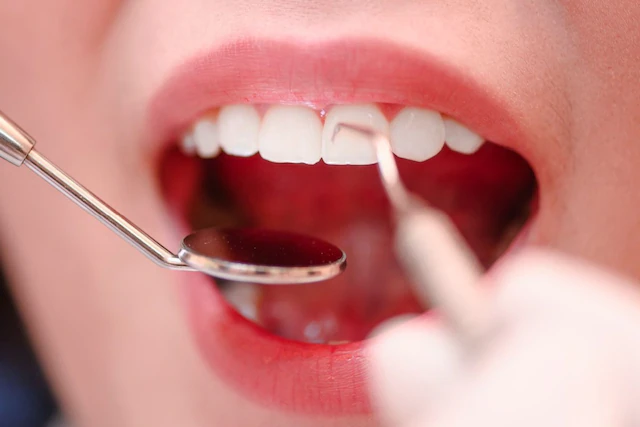Achieving a radiant, white smile with a professional whitening treatment can genuinely boost your confidence and enhance your appearance.
However, the real challenge often begins after the whitening session—maintaining that brightness for as long as possible. See Our 1 Hour Teeth Whitening Bournemouth Treatment Here!
Your daily habits, diet, and oral hygiene routine all play a significant role in preserving your results. Below are some expert-approved tips to help you keep your smile looking freshly whitened and healthy.
How Can You Adopt Healthy Oral Hygiene Habits After Whitening?
After a whitening treatment, your enamel may temporarily become more porous, making it absorb stains more easily. This makes your post-treatment hygiene routine especially important.
Begin by brushing your teeth twice daily with a soft-bristle toothbrush and fluoride toothpaste. Consider switching to a whitening toothpaste that contains mild polishing agents—not harsh abrasives—to remove surface stains gently. Floss daily to clean between teeth, where stains and plaque tend to build up.
Rinsing your mouth with an alcohol-free mouthwash can also help maintain your results, as it removes bacteria without drying out your mouth. And remember, consistency matters more than perfection. A small daily effort adds up to lasting brightness.

Which Foods and Drinks Are Best for Preserving Your Bright Smile?
The “white shirt rule,” which states that anything that can discolour a white shirt can also discolour your teeth, may be familiar to you. Certain foods and beverages should be limited or avoided after teeth whitening, particularly during the first 48 hours when your enamel is more vulnerable.
Avoid or restrict:
- Red wine, tea, and coffee
- Dark sodas like cola
- Tomato-based sauces and soy sauce
- Balsamic vinegar and curries
- Blackberries, cherries, and blueberries
Try these helpful suggestions if you can’t avoid your morning coffee:
- To reduce direct contact with your teeth, use a straw.
- Immediately after consuming dark beverages, rinse your mouth with water.
- To stop enamel deterioration, brush your teeth approximately half an hour after eating.
Bonus advice: Increase your intake of crunchy vegetables and fruits like carrots, celery, and apples. They naturally increase saliva production and aid in tooth cleaning, protecting enamel and avoiding discolouration.
Can Quitting Smoking Really Help Keep Your Teeth White?
Absolutely—and it’s one of the most effective ways to preserve a white smile. Smoking and using tobacco products cause stubborn yellow or brown stains that are extremely difficult to remove, even with professional whitening.
Nicotine and tar not only discolour teeth but also dry out your mouth, allowing bacteria and plaque to thrive. Over time, this contributes to gum disease, bad breath, and enamel damage. Have A Question, Is Laser Teeth Whitening the Fastest Method?
By quitting smoking, you protect your whitening investment and your overall oral health. Many Aspire White Bournemouth clients notice that after they stop smoking, their teeth stay brighter much longer and their gums appear healthier and pinker. It’s a change that benefits both your smile and your well-being.
How Do You Address Tooth Sensitivity After Whitening?
Tooth sensitivity is a common side effect of teeth whitening procedures, especially if your enamel is naturally thin. Fortunately, it’s temporary and controllable with a few practical steps.
Use toothpaste formulated for sensitive teeth Bournemouth; these often contain ingredients that help calm nerves, such as stannous fluoride or potassium nitrate.
For a few days after treatment, avoid foods and beverages that are extremely hot or cold, as temperature changes can cause discomfort. It’s also helpful to use a soft-bristled toothbrush and brush gently to reduce irritation.
If sensitivity persists, your Aspire White Bournemouth specialist may recommend a desensitising gel or apply a fluoride varnish to strengthen enamel and reduce discomfort.
Why Is a Consistent Brushing and Flossing Routine So Important?
A bright smile starts with clean, healthy teeth. Even the most advanced whitening treatment can’t compensate for poor oral hygiene.
Brushing and flossing remove plaque before it hardens into tartar—a rough surface that attracts stains and bacteria.
Make brushing part of your morning and bedtime rituals, and always use gentle circular motions rather than harsh back-and-forth strokes.
Don’t forget to brush your tongue too; it harbours bacteria that cause bad breath and dull your smile.
Flossing once daily is equally vital. It cleans the tight spaces your toothbrush can’t reach, reducing the risk of gum inflammation and discolouration between teeth.
When your oral hygiene is consistent, your whitening results naturally last longer.
How Often Should You Schedule Professional Cleanings and Dental Exams?
Professional whitening can deliver quick results, but for sensitive teeth Bournemouth, this speed often comes with more potent formulas that may increase discomfort.
Aspire White’s Bournemouth at-home treatment gives you complete control over your whitening pace. You can:
- Adjust frequency based on how your teeth feel.
- Pause for a few days if you notice increased sensitivity.
- Build results gradually while protecting your enamel.
Suppose comfort, flexibility, and a stress-free experience are your priorities. In that case, our at-home approach is often the better match — especially if you want to avoid the intense treatments used in some dental surgeries.
For Further Information, don’t hesitate to get in touch with Us Today




